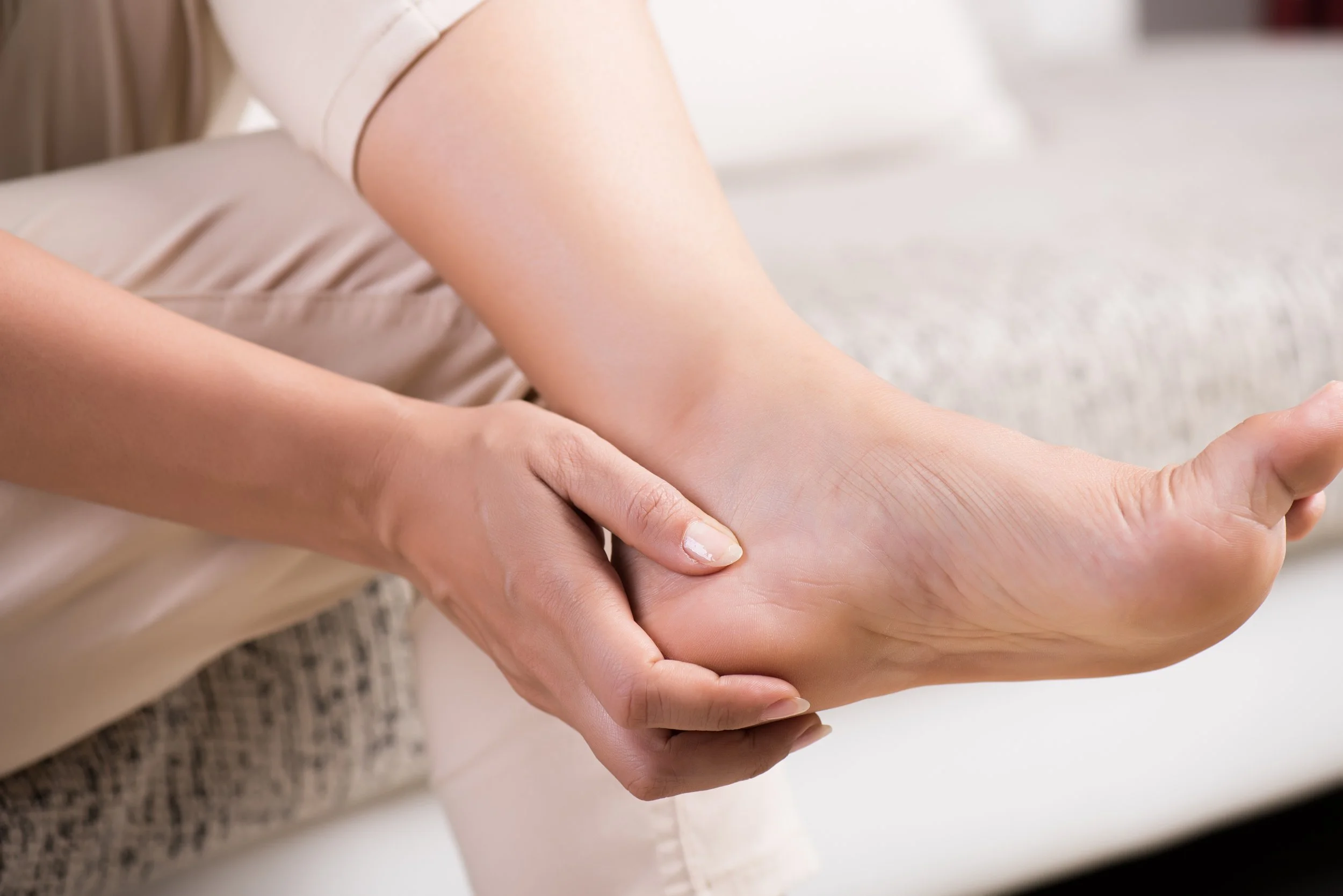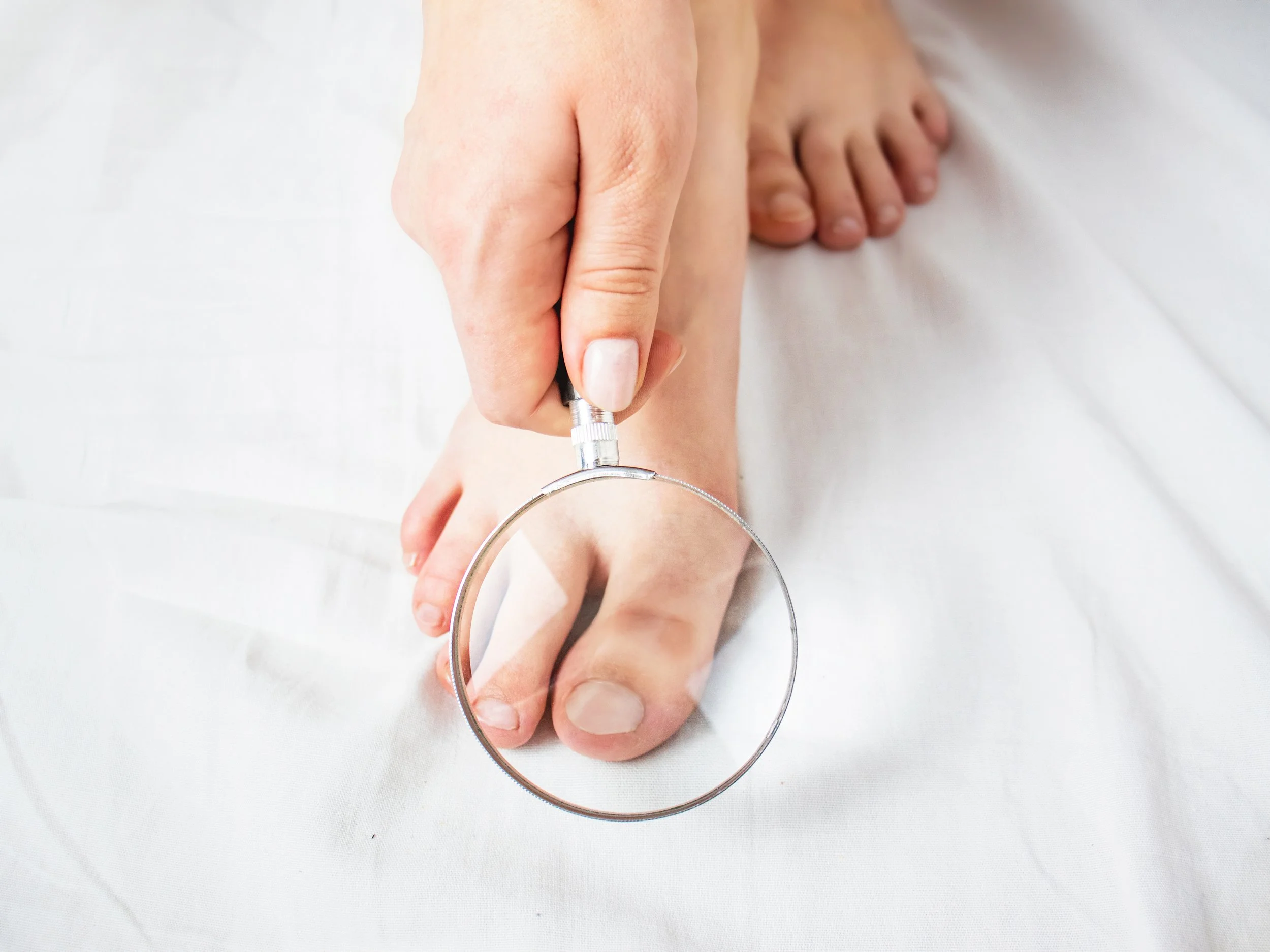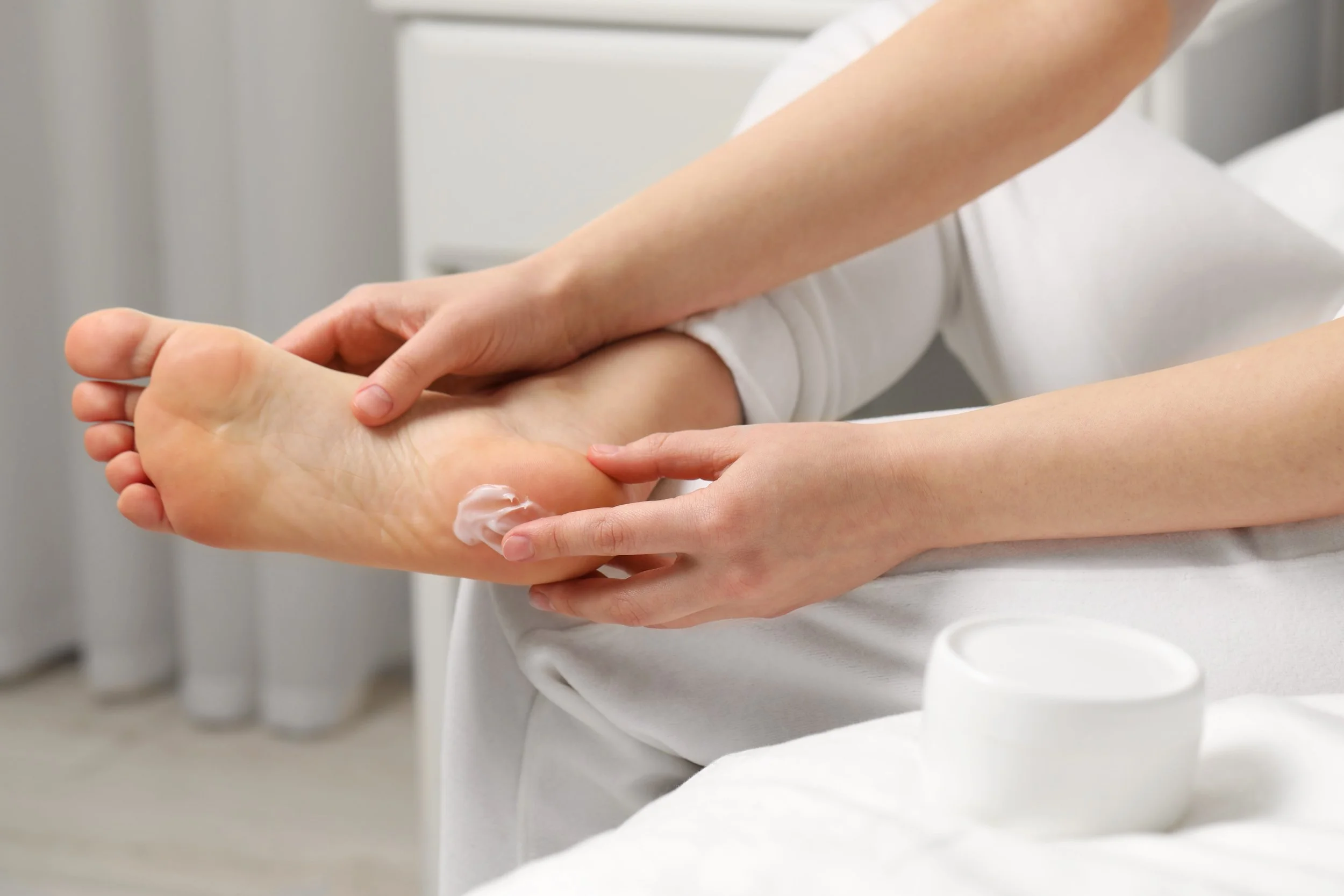Plantar Fasci-What-The?!
Heel pain. We've all been there. Whether it’s after strutting around in those beautiful (but brutal) heels, standing for hours at an event, or pushing yourself in a new workout, it can catch us off guard.
But what happens when the pain doesn’t settle down on its own? When does a bit of a niggle turn into something worth investigating?
If any of this sounds familiar, you might be dealing with an issue involving your plantar fascia — and it’s time to have it checked by a podiatrist.
If you ticked one or more of these boxes above, the pain you are experiencing could be a problem in your plantar fascia and should be assessed by a podiatrist.
What is the Plantar Fascia?
The plantar fascia is a thick, fibrous band of tissue that runs along the bottom of your foot — from your heel bone (calcaneus) to your toes.
It plays an important role when you stand or walk. As your foot hits the ground, the plantar fascia absorbs shock and helps stabilise your arch, allowing you to roll through your step and push off efficiently.
Even though it’s built to be tough, the plantar fascia works hard and takes on your entire body weight — which means it can get overworked, overstretched, and, at times, pretty sore.
Plantar Fasciitis vs Plantar Fasciopathy
Plantar heel pain is most commonly caused by a condition that is commonly referred to as "plantar fasciitis."
However, the term "plantar fasciopathy" more accurately describes the changes seen within the plantar fascia in this disorder (so that’s why I’ll use the term plantar fasciopathy rather than plantar fasciitis throughout this article).
Heel pain may also be due to other causes, such as a stress fracture, tendinopathy, arthritis, nerve irritation, or, rarely, a cyst.
“As there are many causes of heel pain, it is essential to have an accurate diagnosis to determine the underlying source of your pain.”
What Causes Plantar Fasciopathy?
Plantar fasciopathy can be caused by acute trauma (such as a fall or jumping from a height), resulting in a plantar fascia tear. Or it can be the result of repetitive strain and micro-tearing.
With chronic and repetitive stress over time, the plantar fascia can degenerate, leaving it weaker and more prone to episodes of irritation.
This deterioration is known as "plantar fasciosis" and, without appropriate treatment, can lead to months - or even years - of chronic heel pain.
Symptoms
Plantar fasciopathy generally develops slowly over time, so it often is only addressed once symptoms have been present for quite a while.
Plantar fasciopathy typically causes pain at the bottom of the heel or sometimes at the bottom of the mid-foot area. It usually affects just one foot, but in some cases, it can affect both feet.
The pain can be dull or sharp. Some people feel a burning or ache on the bottom of the foot, travelling towards the toes.
The pain is usually at its worst first thing in the morning after getting out of bed and taking the first few steps of the day.
Symptoms can also be triggered by long periods of standing or when you stand up after resting. Pain is usually worse after exercise, not during it.
Risk Factors
Several things can increase your risk of developing plantar fasciopathy:
Age & Gender: Most common between 40–60 years old, and more prevalent in women.
Exercise Type: Activities like running, ballet, or high-impact aerobics increase strain on the plantar fascia.
Sudden Activity Changes: A big spike in physical activity (like starting a new workout, new job, or returning to sport) without gradual progression.
Footwear: Wearing shoes with poor support (like thongs or heels), or shoes that are worn out.
Foot Structure: Flat feet, high arches, or unusual gait mechanics can affect how the plantar fascia is loaded.
Body Weight: Excess weight increases the load on your feet.
Occupation: Jobs that involve standing or walking on hard surfaces for long hours (like teaching, nursing, hospitality, or trades) can take a toll.
When should I see a Podiatrist?
Here’s the good news: heel pain responds really well to the right treatment. In fact, about 90% of people with plantar fasciopathy notice improvement within two months of starting conservative care.
But the first step is getting an accurate diagnosis. A podiatrist will assess your symptoms, foot structure, and walking pattern — and may refer you for imaging to confirm the diagnosis if needed.
Once the cause is identified, your podiatrist will develop a personalised treatment plan focused on:
Reducing pain and inflammation
Stretching and strengthening exercises
Supporting healing
Addressing the underlying cause to prevent it coming back
Plantar fasciopathy is a chronic condition, but with the right care, you can get back to moving comfortably again — and stay that way.








